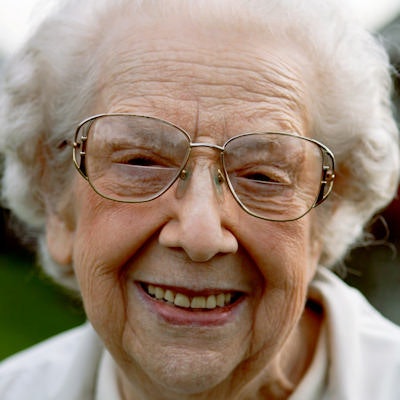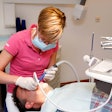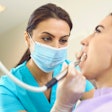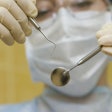
Older people who are hospitalized often aren't getting the oral care they need in the evening, according to a new study. The study of five Canadian hospitals found only about a third of patients were receiving the oral healthcare interventions necessary from nurses.
By removing plaque from patients' teeth and dentures, nurses can contribute to the oral health and systemic health of these patients, the study authors noted. Yet, they observed that many nurses seemed to view oral hygiene care as an elective intervention, different from other interventions such as wound care, vital sign monitoring, and medication administration.
"Although there is a lack of general evidence to inform oral care interventions, practices were inconsistent with the evidence that does exist in practice guidelines and other published sources," wrote the authors, led by Esther Coker, PhD, RN, from the McMaster University School of Nursing in Hamilton, Ontario (Geriatric Nursing, August 1, 2016).
Engagement efforts
Poor oral health conditions, such as plaque buildup, in older hospitalized patients can contribute to various systemic health issues, including different types of pneumonias, if left untreated. However, the question remains whether nurses prioritize oral healthcare for these patients.
“Practices were inconsistent with the evidence in practice guidelines and other published sources.”
In their study, the researchers found that just over a third of patients had a confirmed oral hygiene intervention; the rest either received no intervention, or it wasn't known whether an intervention took place. The findings indicate that hospitalized elderly patients may not be getting appropriate dental care.
The authors noted that what they called direct observations of oral care provided by nurses in hospital settings have not been reported since knowledge about the oral-systemic link has become more widely known. So they decided to study if older patients were getting the appropriate oral care they needed during their stay at five hospitals in a large city in southern Ontario.
The researchers conducted this study on the hospitals' inpatient units. They identified these units as ones where patients were likely to require assistance with their oral hygiene care.
These older patients had a hospital stay longer than a few days and were cared for on hospital-based complex continuing care or rehabilitation units. The researchers shadowed 25 registered nurses and registered practical nurses during their evening care encounters with their assigned patients. The table below illustrates the nurses' efforts toward engaging the 185 patients in the study.
| Did a patient receive an oral hygiene intervention? | ||
| Outcome | Number (185 total) | Percentage |
| Some intervention | 66 | 36% |
| No intervention | 48 | 26% |
| Not known | 71 | 38% |
The most likely response was that the nurse did not have firsthand knowledge of whether oral care took place for that patient. In the 36% of encounters in which oral hygiene care actually took place, the interventions consisted of the following:
- Supporting the care of persons with dentures
- Supporting the brushing of natural teeth
- Cleansing the tongue and oral cavity
- Moisturizing lips and oral tissues
Secondary interventions included denture care, patients brushing their own teeth, tongue cleaning, and rinsing of the mouth, and they are summarized in the table below.
| Secondary interventions | |||
| Intervention | Number | Most frequent action | Number |
| Denture care | 40 | Denture brushing | 17 |
| Patient brushed teeth | 39 | Supervising patient brushing | 20 |
| Tongue cleaning | 3 | Nurse prompt | 2 |
| Rinsing of mouth | 14 | Used hospital-issued mouth rinse | |
"Brushing techniques ranged from superficial to comprehensive," the authors noted. "Nurses tended not to interfere with or comment on patients' brushing their own teeth even if it was a slapdash effort."
Guidelines not followed
The authors noted several issues with this study:
- The findings of this study cannot be generalized, because the participants comprised a convenience sample of nurses from five hospitals in the same city.
- When participants know the purpose of being observed, their behavior may not be typical.
- Observations were limited to evening oral care, and it is possible that patients had received oral care in the morning.
Nevertheless, the study findings indicate that practice guidelines recommending twice daily oral care were still not followed, the authors concluded. They also noted that bedtime brushing is more beneficial than daytime brushing.
"Just over a decade ago it was shown that pathogens in dental plaque match those in the lung fluid of patients with hospital-acquired pneumonia," the authors wrote. "This fairly recent development highlights oral hygiene care as being within the realm of infection prevention and not comfort care alone."
Study disclosures
This study was supported by the Nursing Research Interest Group of the Registered Nurses' Association of Ontario.



















